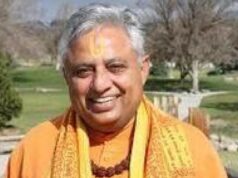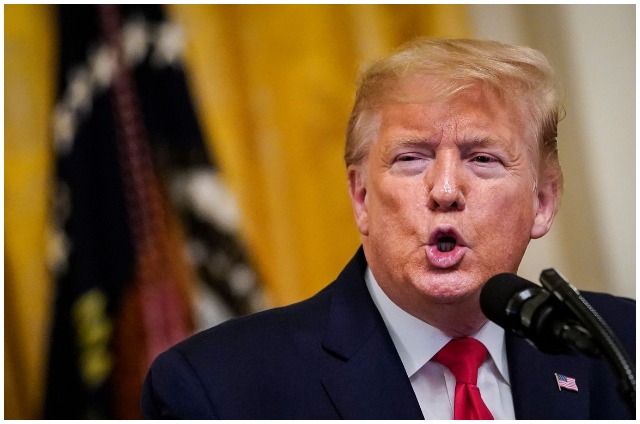Washington – Democrat Hillary Clinton and Republican Donald Trump have spent months throwing jabs at one another, but Monday evening for the first time they will be able to do so face to face in the first of three US presidential debates.
The 90-minute debate at Hofstra University on New York’s Long Island marks the start of the final phase of the presidential campaign ahead of November 8 elections, when more voters traditionally tune in to the campaigns that have already captivated the political press for more than a year.
Opinion polls have narrowed in recent weeks, and although Clinton still looks to have an edge, a few surveys have given Trump a lead nationwide after months in which Clinton held a solid position.
Hofstra University Debate 2016 banner pictured on September 13, one of many displayed on the university’s campus. It will host the first presidential debate between Democrat Hillary Clinton and Republican Donald Trump on Monday. (Credit Image: © Ann Parry via ZUMA Wire)
“The stakes are really high,” Aaron Kall, a University of Michigan professor who has written a book on presidential debates, told dpa.
“Both candidates are so different. They have radical different views. The interest is at an all-time high,” Kall said.
The amount of interest is expected to produce a record number of viewers. The trade publication Ad Week said more than 80 million viewers could tune in, a figure last surpassed in 1980 when president Jimmy Carter faced challenger Ronald Reagan.
Neither candidate is particularly well liked and both are fighting to win over a small number of undecided voters, hold onto existing supporters and rally marginal backers to vote.
Clinton needs to pull lukewarm younger voters into her camp and woo anti-Trump Republicans, while Trump needs to work to unify his still-fractured party, political scientist Larry Sabato of the University of Virginia said.
The candidates have been spending the days before the debate preparing for potential scenarios. Clinton has engaged in traditional mock debates and considered a variety of Trump strategies, while Trump has taken a less conventional tack, meeting more informally with advisors, according to The New York Times.
The Clinton campaign on Friday began spinning the debate, briefing reporters on lies Trump might repeat.
Clinton must regain the upper hand, playing her decades in government as an advantage in solving problems, while Trump must overcome his shortcomings as most Americans, even some of his supporters, question whether he has the temperament to be president.
“Mr Trump must reassure them. He talks in short, powerful sentences, which is a strength. He should pair it with a presidential tone, as he did during his news conference in Mexico City, where he was restrained and humble rather than angry or rude,” writes Karl Rove, a former advisor to president George W Bush, who has not supported Trump.
Clinton meanwhile got some advice from the man she hopes to replace.
“Be yourself and explain what motivates you,” President Barack Obama said in an interview with ABC News.
The first debate will be moderated by NBC journalist Lester Holt and will feature questions about the direction of the country, the economy and national security.
Violent protests over the fatal shooting of a black man by police in North Carolina and a terrorist bombing in New York are sure to shape the discussion along with economic issues and broader questions about terrorism.
Questions about each candidate’s qualifications also are expected to come up, as Clinton has painted Trump as temperamentally unfit to serve as president and Trump has questioned Clinton’s judgement and her health.
Clinton is by far the more experienced debater after a long career in public service, but Trump starred in most of the debates during the long intra-party primary season and used tough language to eviscerate his opponents, painting Jeb Bush as weak and Ted Cruz as a liar.
But such a tactic could backfire on Monday which will be the first time he has faced an opponent one-on-one.
“He was able to hide in the primary debates, he would say something crazy and then the moderator would not come back to him for 30 minutes,” Kall said. “There is no hiding in a two-person debate. He is going to be under a lot more pressure.”
If he takes too hard of a stance, he could risk making Clinton into a more sympathetic figure as happened in a debate when she was running for Senate in 2000.
Most viewers expect Clinton to win the debate, with 53 per cent of respondents telling a CNN poll they think she will prevail versus 43 per cent for Trump.
However with Trump as the underdog, he may not have to deliver as strong a performance to do well.
Afterward the question will be whether Trump was able to appear presidential and whether Clinton had overcome her trustworthiness deficit.
– dpa











